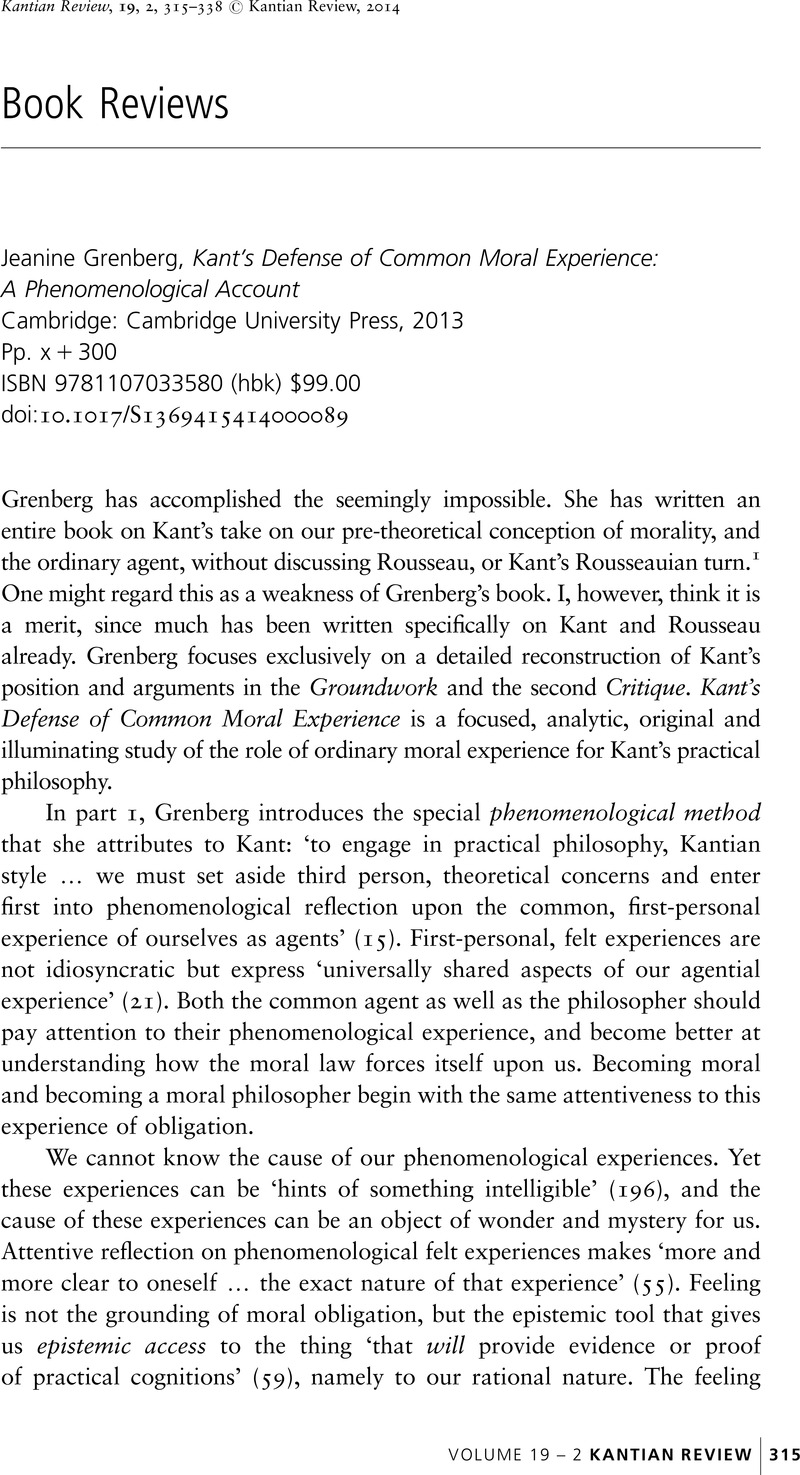Article contents
Jeanine Grenberg, Kant's Defense of Common Moral Experience: A Phenomenological AccountCambridge: Cambridge University Press, 2013 Pp. x + 300 ISBN 9781107033580 (hbk) $99.00
Published online by Cambridge University Press: 29 May 2014
Abstract

- Type
- Reviews
- Information
- Copyright
- Copyright © Kantian Review 2014
References
1 Grenberg only mentions Rousseau in a footnote (87).
2 Grenberg contrasts the Second Gallows Case with the most hardened scoundrel in Groundwork, 4: 454–5 (see especially ch.7). From these two cases ‘very different conclusions’ (178) can be drawn.
3 See for instance 4: 403, 4: 421–3, 5: 27, 5: 36, 5: 44, 5: 69.
4 This claim also does not sit well with certain passages in the second Critique in which Kant states that respect for the moral law has no epistemic function (5: 76. 16–23). Overall, textual evidence in the second Critique for the epistemic function of respect is, admittedly, ambiguous.
- 1
- Cited by


